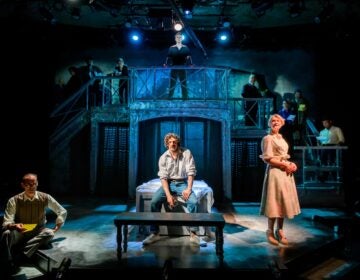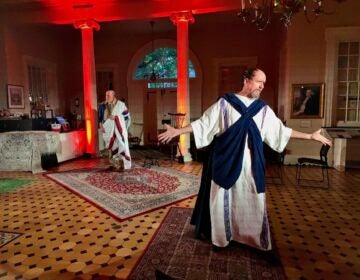Grammy-winning choir The Crossing premieres sci-fi theatrical performance
The 1954 dystopian sci-fi novel by Swedish poet Harry Martinson has been developed into a 90-minute performance with singers, actors, and video.
Listen 2:38
Members of The Crossing chamber choir rehearse "Aniara" at Christ Church Neighborhood House. (Emma Lee/WHYY)
Imagine you’re on a spaceship leaving Earth. You are part of the last group of people to leave a dying planet, and are headed out to colonize Mars.
But your ship veers off course. You are now pointed nowhere, toward the vast emptiness of the universe, and there’s nothing you can do about it.
“I don’t think there’s any attempt on our part to imply hope,” said Donald Nally, conductor of The Crossing choir, which developed “Aniara” and performing its premiere this weekend.
“I think we do a pretty good job of presenting it as it is,” he said. “This happened.”
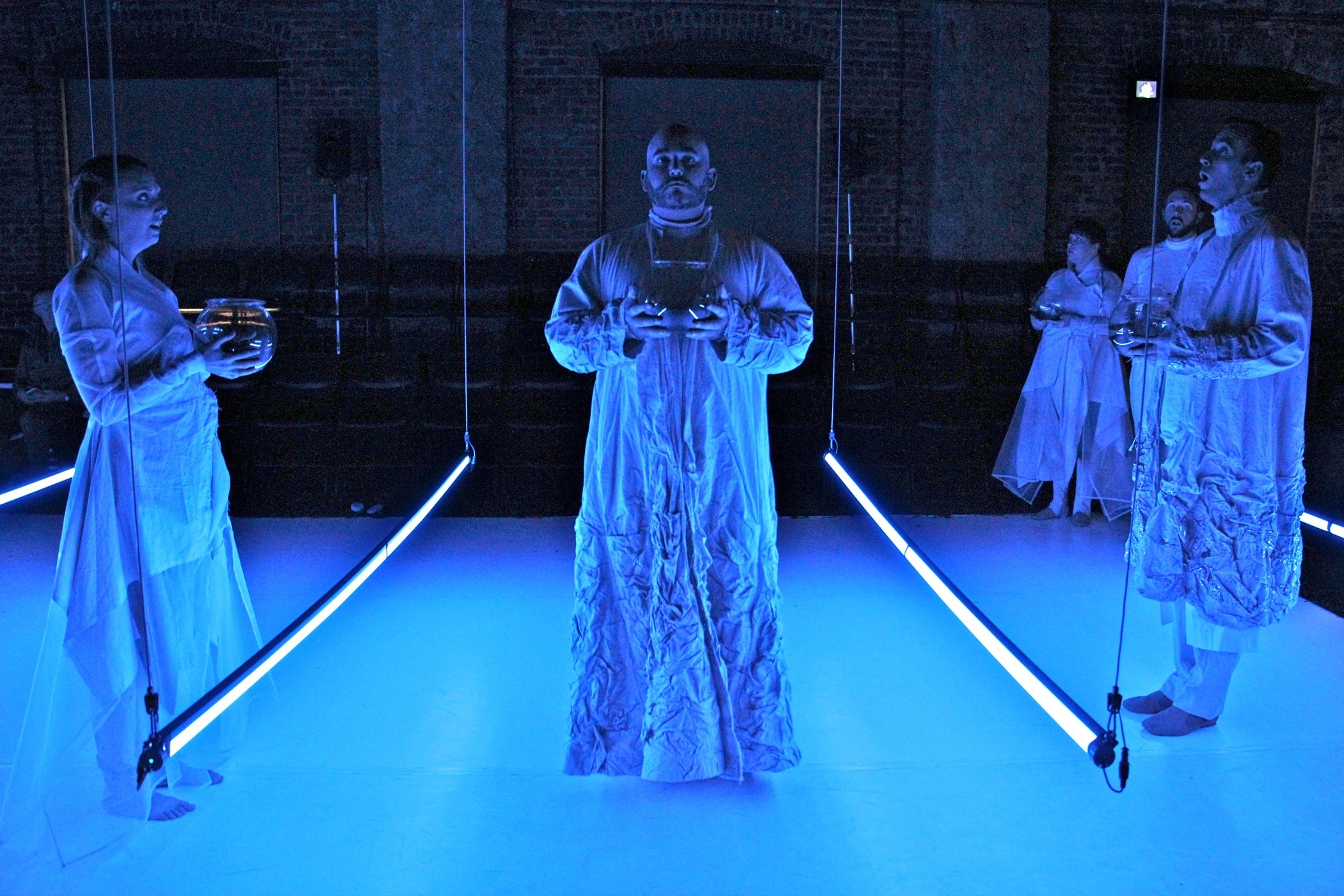
The Crossing, which won a Grammy Award last year, collaborated with composer
Robert Maggio and the Finnish theater company Klockriketeatern to make a theatrical choral piece based on a novel by Swedish poet Harry Martinson, a Nobel laureate.
“Aniara” was published in 1956, during the height of the Cold War. The novel-length poetry cycle of 103 cantos is about Planet Earth destroyed by nuclear war, and a doomed attempt to escape it.
The Swedish science fiction drama has also been made into a movie, though it is not yet playing in regional cinemas.
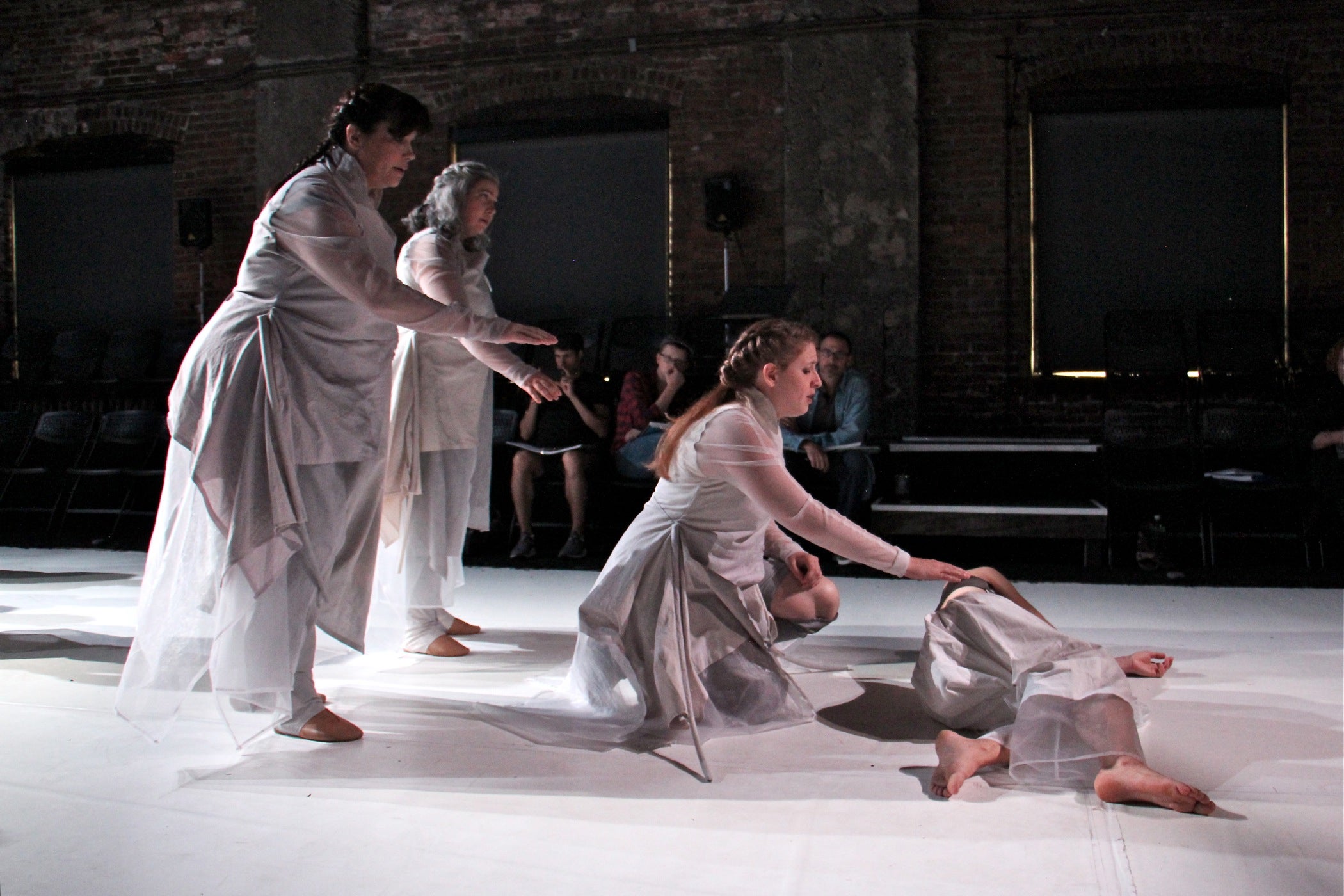
“It’s not science fiction,” said Dan Henriksson, director of the Klockriketeatern. “It’s a story about loneliness and people without a home. This situation is caused by man himself. That’s what we have been doing for the last 70 years.”
The full title of the work is “Aniara: fragments of time and space.” Similar to the nonlinear structure of the novel, The Crossing’s 90-minute performance is broken up into 17 fragments, each with its own story with its own music. It will be performed this weekend at Christ Church Neighborhood House, in Philadelphia’s Old City.
The production has elaborate mechanical lighting rigs, video projections, costumes, and movement. Primarily, however, this is a choral performance.
“We have 18 people on the floor, and very little physical contact with each other,” said Henriksson. “The space here at Christ Church is very intimate. We are very close to the audience. I hope that the audience can feel this: how close we are to each other, and that there is a chance we will reach out.”
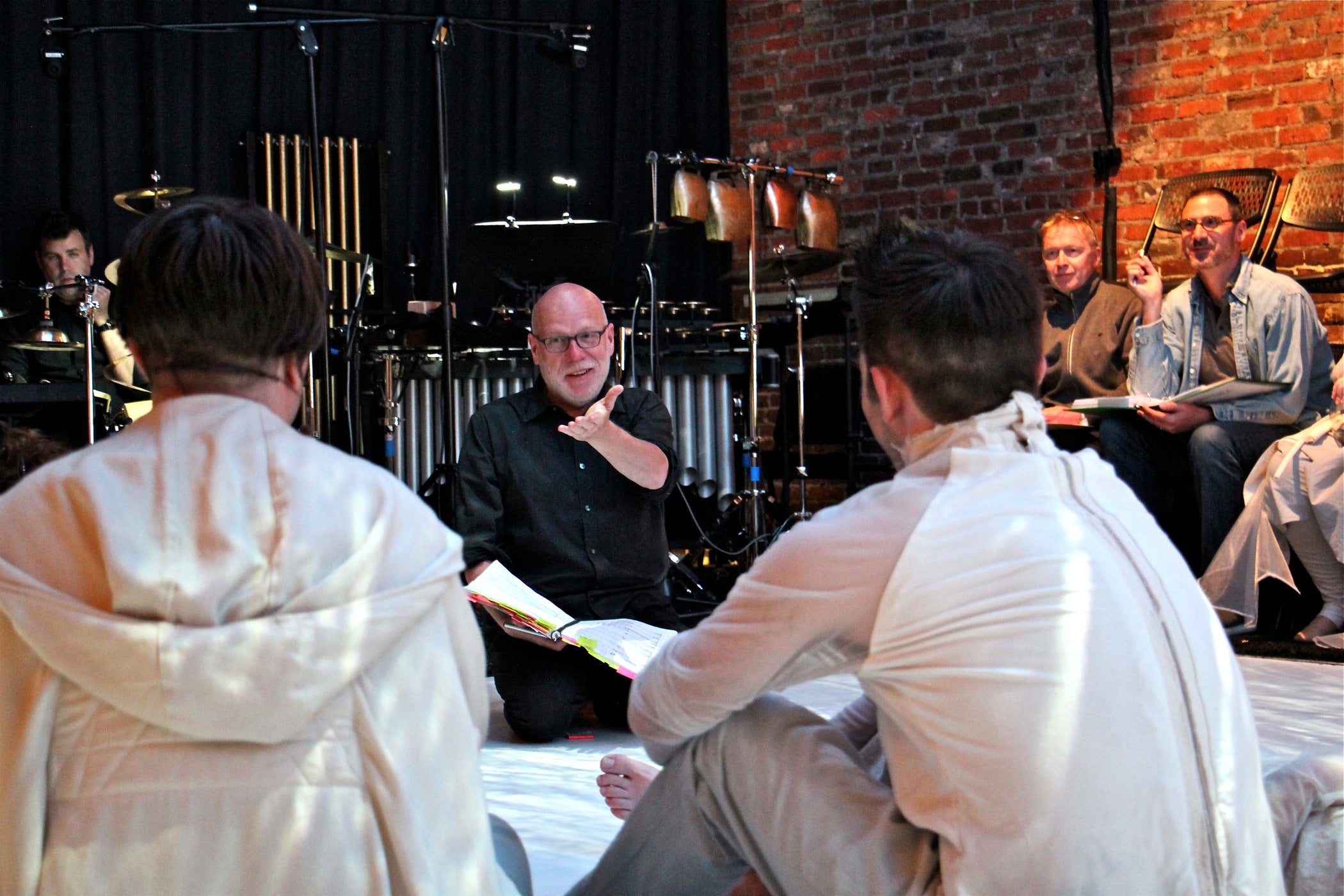
The premise of the story is hopelessness – 8,000 people are trapped on a spaceship heading nowhere, forever. As the doom sets in, so do social and existential problems. The population starts to form cults. Social hierarchies break down. An onboard artificial-intelligence computer, named Mima, was designed to keep up the spirits of passengers for the quick hop to Mars. After six relentless years, it breaks down. Memories of Earth begin to warp.
Even amid inevitable doom, hints of humanity remain.
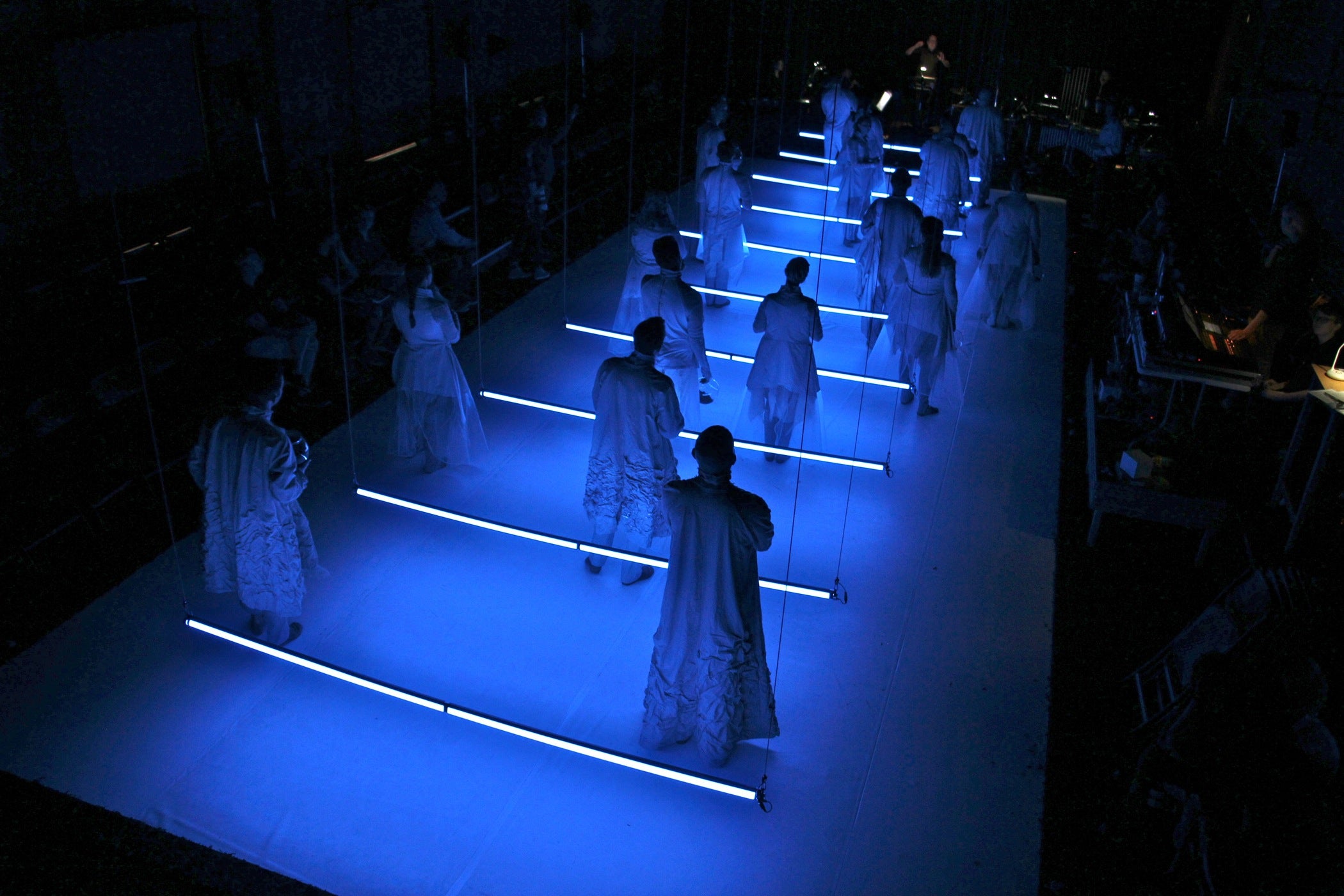
“The thing that struck me about the novel is how there is all this love in the piece, and it didn’t have any place to go,” said Nally. “Characters were expressing things in which love wanted a destination, and it didn’t have it.”
The sold-out performances on Friday night and Saturday afternoon will be live-streamed here. The ship then heads to Europe, setting down later this summer in Finland and the Netherlands.
WHYY is your source for fact-based, in-depth journalism and information. As a nonprofit organization, we rely on financial support from readers like you. Please give today.




